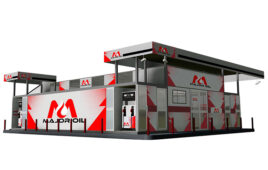The moist smokeless tobacco(MST) category is the only growingtobacco category, and has been increasing at 4-6% per year consistentlysince 2002. Over the past few years, theMST category has developed three distincttiers (See Figure 1). Tier one (premium)accounts for more than 59% of MST sales,tier two (price value) accounts for approximately 15% of sales and tier three (sub-pricevalue) accounts for 26% of sales. (Source:USSTC Retail Account Database, Sales toVolume Tracker).
The sub-price value segment is thefastest growing segment within the MST category. It is a relatively new phenomenon butbecause these products are sold at retail fora deep discount, retailer profits suffer.
Ad Valorem Taxes on MST HurtRetailer Profits.
The ad valorem (or percentage tax) is avestige of the days when tax rates were uniformly low across the country and there waslittle difference in the wholesale price of different MST products. Today, wholesale pricepoints within the MST category range from81 cents (sub-price value) to $3.01 per can(premium). This pricing dynamic has theunintentional consequence of like productsbeing taxed very differently. In short, tax policy has not kept up with the smokelesstobacco category. In effect, every state withan ad valorem tax rate (See Figure 2) is subsidizing discount tobacco products by creating preferential tax treatment for these products. As a result, retailer profits have beenand will continue to be negatively impactedbecause of this system.
A Fair and Equitable Solution: TaxMST on the Basis of Weight.
A weight-based method of taxation onMST would eliminate the unfair tax preference currently enjoyed by discount MSTproducts in states with ad valorem basedexcise taxes. If states were to tax MST on aper ounce basis, the tax would be the samefor any product containing the same amount of tobacco, regardless of price. By eliminating the tax preference for lower priced MSTproducts, tax incentives for consumers totrade down to lower priced products, whichgenerate less profit for retailers, would beeliminated as well, restoring maximum profitability to the retailer.
Weight or volume based excise taxes onconsumer products are not a new concept.In fact, in the field of state excise taxes, advalorem taxes on tobacco products otherthan cigarettes are the exception rather thanthe rule. Virtually every other consumerproduct subject to an excise tax (e.g. cigarettes, alcohol, and gasoline) is taxed byweight or volume of the product sold, notprice. In addition, nine states and the federal government tax MST based on weight.
In 2006, three states changed the waythey tax MST from an ad valorem tax to aweight based tax. Additional states will beconsidering a similar change in the yearsahead. If you, as a retailer, are concernedabout the profits you are foregoing becauseof the ad valorem tax system in your state,contact your legislators and state tradeassociation and encourage them tosupport a conversion to a weight-based tax on MST. Your business will be glad that you did.




